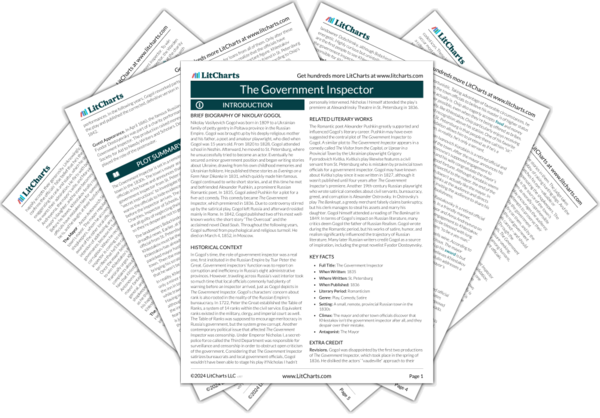Khlestakov’s fixation on food emphasizes that his priority is pursuing pleasure. Likewise, the food from the charity hospital lunch symbolizes Khlestakov’s self-indulgent pleasure seeking. The food also represents the town officials’ selfishness and greed, especially as the officials get to enjoy the delicious lunch for their own benefit in the same place where hospital patients suffer as a result of the officials’ dereliction of duty. Preoccupied with his own pleasure, Khlestakov doesn’t notice the obvious signs of the officials’ corruption, that he’s being bribed, or that he’s been mistaken as a government inspector. He simply seeks more pleasure. Meanwhile, the judge exposes more of the mayor’s lies, corruption, and avarice through his jealousy.
